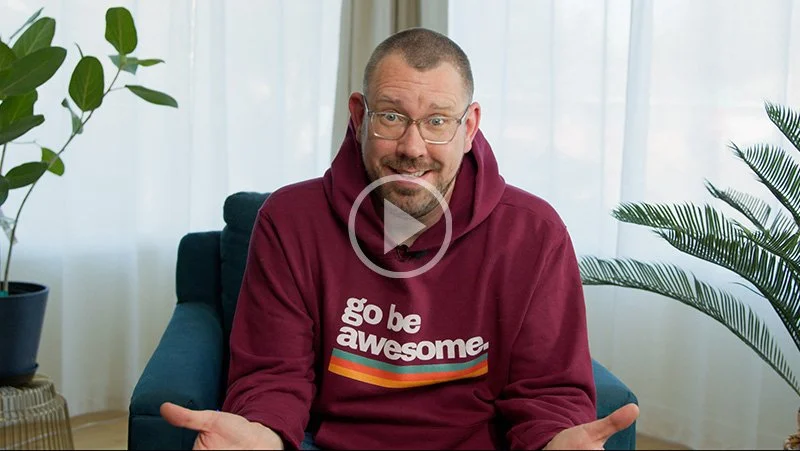Leadership Identity: Who Are You as a Leader?
Welcome to the #culturedrop. Every Tuesday, Galen Emanuele emails tools to advance leadership skills, team culture, and personal growth. No spam, just great content. Sign up now to get it in your inbox.
Who are you, and more importantly, who do you want to be as a leader?
It matters as a leader to define your leadership style and identity, and be clear about how you want to show up and impact other people.
*I’ve added a free downloadable resource to guide you through this, it’s linked at the end of the blog.
I know that this topic for some people might fall in the category of being a little woo-woo, in terms of being intentional and even writing things down. Regardless, the truth is that doing a quick little exercise like this can be game changing and so important to your career and success as a leader.
“Defining and getting clear about who you are and want to be as a leader is key to your own self awareness and being more effective in your role.”
Defining and getting clear about who you are and want to be as a leader is key to your own self awareness and being more effective in your role. It's not overly complicated to sit down and actually get clear about some of these things — it’s just a matter of asking and answering the right questions.
These are some of the most juicy questions that I have found provide the most meaningful reflection and results. I’ve broken these up into three parts: “Personal Core Values,” “Personal Legacy & Impact,” and “What Makes You Tick?”
1) Personal Core Values
Your core values are the foundation of your leadership identity and create the ground rules to guide how you show up in your role and impact others.
“... values by themselves won’t do you a lot of good. In order to make them real and tangible, you have to define what they look like in practice.”
And just values by themselves won’t do you a lot of good. In order to make them real and tangible, you have to define what they look like in practice. “Respect,” for example, sounds nice but if you want it to be meaningful or something you can measure or improve at then you have to define what respect looks like in practice for you.
The exercise:
In your perfect vision of yourself as a leader, create a list of four or five core values or tenets that drive your behavior and how you want to show up everyday. Remember this is an exercise for you, not to impress anyone else. So, reflect deeply and think about what’s really important to you, not just what you think someone else would like to see that you came up with.
Then once you’ve done that, for each of these values write three concrete examples of exactly what they look like in action. These should be clearly defined behaviors that are specific and tangible.
2) Personal Legacy & Impact
“Everything you do contributes to your personal legacy and impact.”
Your personal legacy is defined by the impact you make as a colleague, mentor, and leader regardless of your role in the organization. Everything you do contributes to your personal legacy and impact. This part is crucial for self awareness and perspective as you see yourself through others’ eyes.
Here are some questions to answer clearly that will illuminate what impact you want to have on others:
What do you want it to feel like to be part of your team, and on the receiving end of your communication and leadership style?
What do you want people to tell their friends, colleagues, and family about what it’s like to work with you?
How do you want to be known and remembered as a leader?
3) What Makes You Tick?
Clarity and communication around “what makes you tick” is key to deeper understanding of your own mindsets and behaviors, and how your team can interact with you more effectively. Answer these questions of yourself to share with your team. Ideally, also find an opportunity in the future for everyone on your team to answer these and share together with each other.
“Self awareness is a must-have when it comes to being a great leader.”
Here are some questions that I think every leader should know about themselves, and that their team should know about them too. In a perfect world you also know the answer to all of these questions about each of your team members — so go ask them when you’re done with yours.
What do you see as your biggest strengths & areas of opportunity to improve?
How can people on your team earn an extra gold star with you?
What are pet peeves of yours on a team?
What’s the best way to share feedback with you?
Something people often misunderstand about you?
Best approach if someone has something difficult to say to you?
Something you think you’re exceptional at that most people don’t know?
Final thoughts
This kind of work for leaders is paramount for them to understand about themselves. Self awareness is a must-have when it comes to being a great leader. Getting clear about these kinds of questions and understanding yourself better is a really great place to start.
*For a free PDF download of this resource that includes these sections and questions, CLICK HERE.
Related Articles:
Leaders MASSIVELY Impact Employee Experience
Want more?
This article was created by Galen Emanuele for the #culturedrop. Free leadership and team culture content in less than 5 minutes a week. Check out the rest of this month's content and subscribe to the Culture Drop at https://bit.ly/culturedrop








